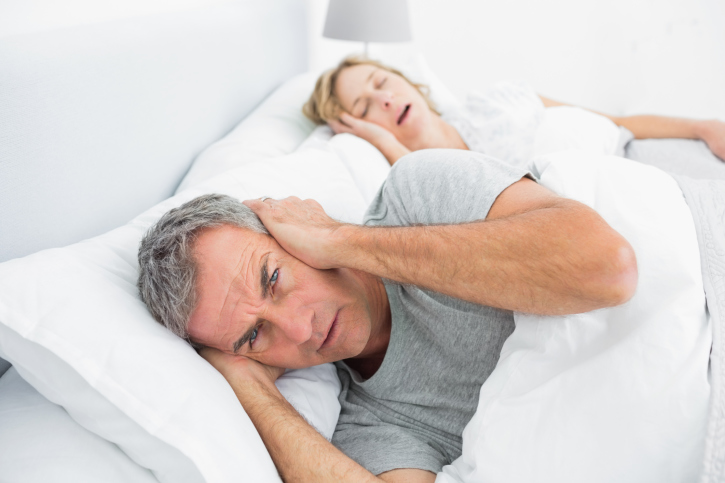 I’ll always remember one familiar sound I heard when growing up. Every night, a couple of hours after I was put to bed, it would start. I was far enough away that it was muffled, but it was there nonetheless.
I’ll always remember one familiar sound I heard when growing up. Every night, a couple of hours after I was put to bed, it would start. I was far enough away that it was muffled, but it was there nonetheless.
To this day, I’ll never be able to understand how my mother managed to get a single night’s sleep with her husband snoring beside her at a raucous volume. It would echo throughout the house. In fact, one year, we were on a family vacation in Phoenix, Arizona and the people in the room beside my father practically banged down the wall in an effort to get him to stop. Their efforts went unnoticed.
My dad has sleep apnea and has since taken measures to limit its impact. He wears a device every night to open up his airways and allow him to breathe freely, safely, and—for the sake of others around him—quietly.
Sleep apnea is the total stoppage of breathing during sleep, which is typically accompanied by heavy snoring. It’s quite loud, and because someone who has it is unconscious, they usually have no idea what is taking place. It raises a number of health risks like high blood pressure, stroke, heart failure, diabetes, and depression. A new study has also shown it is linked to hearing damage.
This comes as little surprise to me because, as my dad aged, his hearing became increasingly worse. These days, the TV is on full-blast, he mishears things, and sometimes he raises his voice completely unaware of the volume at which he’s speaking.
The study I’m referring to, conducted by the American Thoracic Society, found that sleep apnea is independently associated with hearing impairment at both high and low frequencies.
Nearly 14,000 subjects participated in at-home sleep apnea studies. Sleep apnea was assessed with the AHI index, which is used to monitor the number of times a person stops breathing throughout the night. They found that people with sleep apnea were 38% more likely to suffer from hearing impairment when adjusted for other factors.
The risk for sleep apnea increases if you are male, overweight, and over 40, and if you have a large neck, a family history of sleep apnea, a deviated septum, or sinus problems.
You might be at risk for sleep apnea if you’ve been told you snore heavily, sound like you’re struggling to breathe, or have stopped breathing while sleeping. If you have no one to tell you these things, I’d recommend talking to your doctor about testing. Sleep apnea is a relatively easily treatable condition these days, and the health risks it poses can really add up if left untreated.
Sources for Today’s Article:
Chopra, A., et al., “Sleep Apnea And Hearing Impairment In The Hispanic Community Health Study/Study Of Latinos,” American Journal of Respiratory and Critical Care Medicine 2014; 189: A5335.
“Sleep Apnea Tied to Hearing Loss in Large Study,” ScienceDaily web site May 20, 2014; http://www.sciencedaily.com/releases/2014/05/140520152949.htm#.U3vTPPBlK0w.email.
